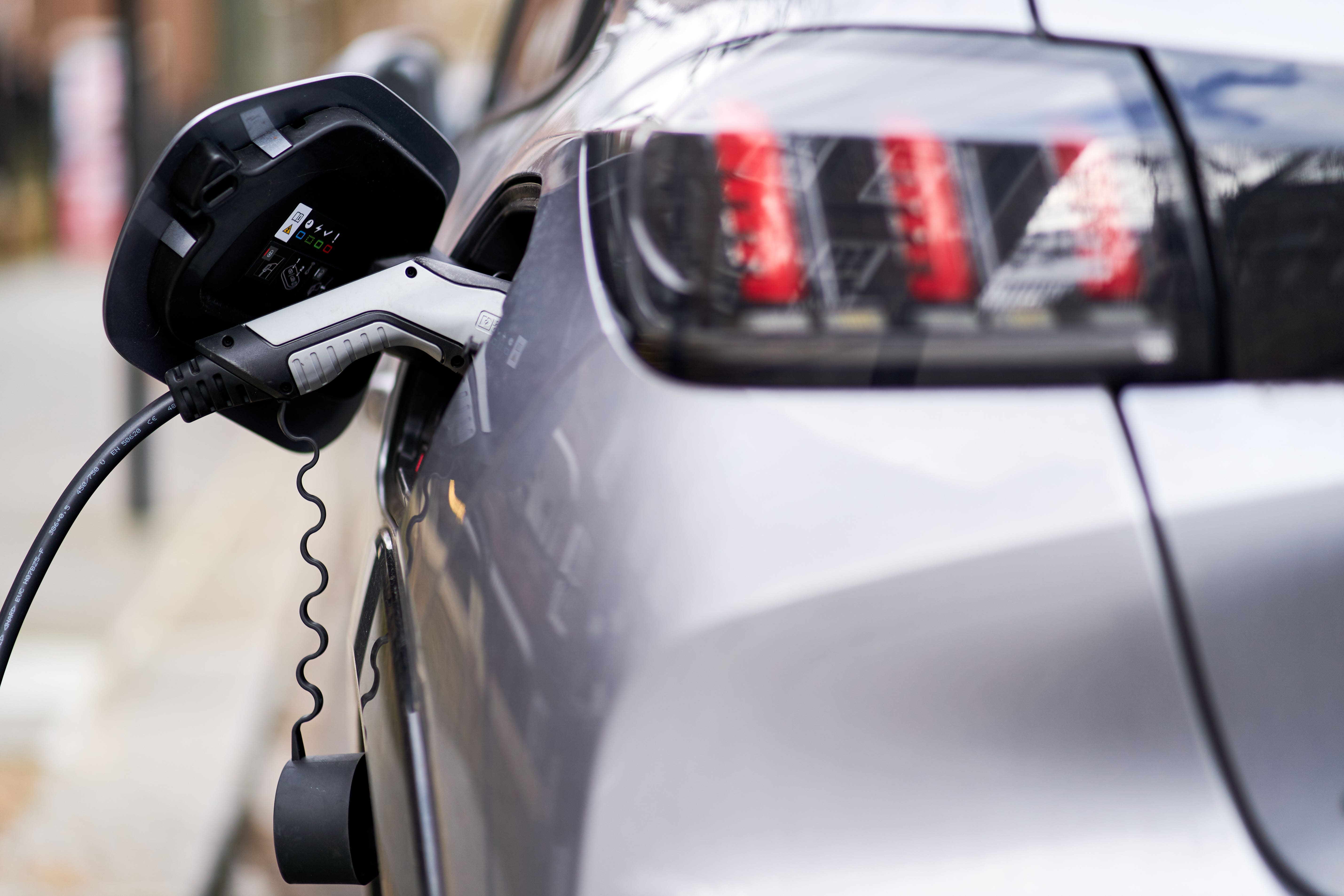Cost of using rapid EV chargers ‘stubbornly high’ – report
RAC analysis found a fall in wholesale energy prices has not been reflected in the cost of using some of the fastest chargers.

Prices for public rapid charging of electric vehicles (EVs) remain “stubbornly high”, new figures show.
RAC analysis found a fall in wholesale energy prices has not been reflected in the cost of using some of the fastest chargers, which are relied on by drivers making journeys beyond the range of their EVs.
The average cost of using chargers with power outputs between 50 and 149 kilowatts on a pay as you go basis is 79.19p per kilowatt hour (kWh).
Drivers of electric vehicles might be frustrated
That is virtually unchanged from the start of the year (79.55p), but up 4% since a year ago and up 28% on two years ago.
The analysis found off-peak home charging can cost less than a tenth of the price of using a rapid charger at around 7p per kWh.
For people who do not have off-road parking, using an on-street lamppost or bollard charger costs around 49p per kWh.
Average wholesale electricity prices have fallen from a high of 51p per kWh in August 2022 to under 9p per kWh at the end of the same month this year.
The RAC said this has not led to public rapid charging prices dropping, partly because the companies building and operating the devices have faced huge increases in some of the prices they pay for electricity supply.
They are also funding much of the expansion of the EV network in a bid to meet future demand, and unlike for domestic energy customers there is no price cap on electricity bought by businesses.
RAC spokesperson Rod Dennis said: “Drivers of electric vehicles might be frustrated that the cost to use rapid or ultra-rapid chargers remains stubbornly high, despite wholesale energy prices dropping.
“But they might also be surprised to learn that the actual cost of electricity they are using when they charge up makes up a relatively small part of the total price they have to pay due to the high charges levied on the networks for grid upgrades and connections.
“Charging networks are spending enormous sums of money now to install the charging infrastructure that an increasing number of drivers will be using in the years to come, as more of us switch to EVs.
“Not all drivers depend on these fastest, high-powered chargers, but they are a crucial element of the charging mix.
“It’s vital that public charging costs for drivers come down.”
Vicky Read, chief executive of ChargeUK – which represents the UK’s EV charger industry, said: “Reforms are needed to help charge point operators offer public charging that is as affordable as possible.
“The sector has committed to spend £6 billion ahead of demand and profitability to deliver the charging infrastructure that the UK needs.
“But operators are faced with significant costs outside their control.”
She said these include VAT charged at 20% for electricity from public chargers (compared with 5% for domestic use), standing charges for rapid charging that have risen more than 10-fold in the past 18 months, and wholesale electricity prices that remain among the highest in Europe.
She added: “We call on the Government and (energy regulator) Ofgem to act now to ensure that affordability is not a hurdle in the transition to EVs.”
A Government spokesperson said: “The majority of electric vehicle drivers are able to charge at home, which can cost around half the price of filling up an equivalent petrol vehicle.
“While our ambition to move to clean power by 2030 will mean cheaper energy, we’re also supporting drivers to make the switch to electric through grants for those without driveways, £200 million to roll out chargepoints, and lower tax rates for electric cars.”
Bookmark popover
Removed from bookmarks